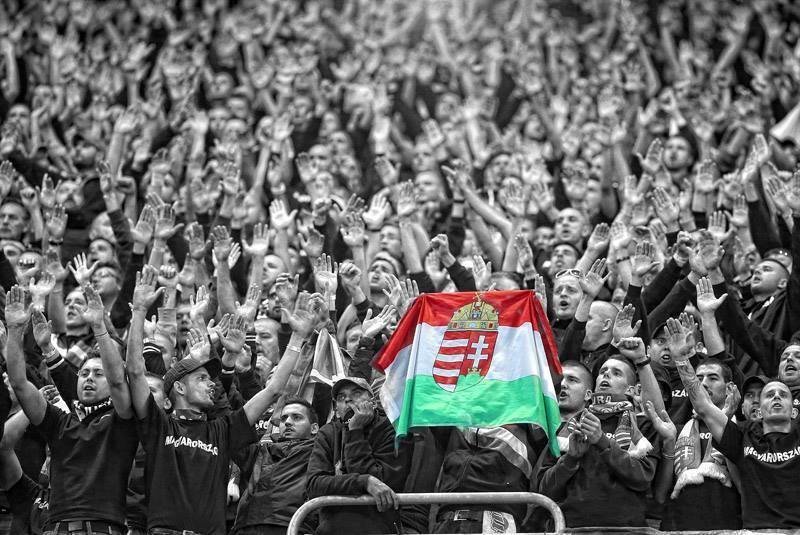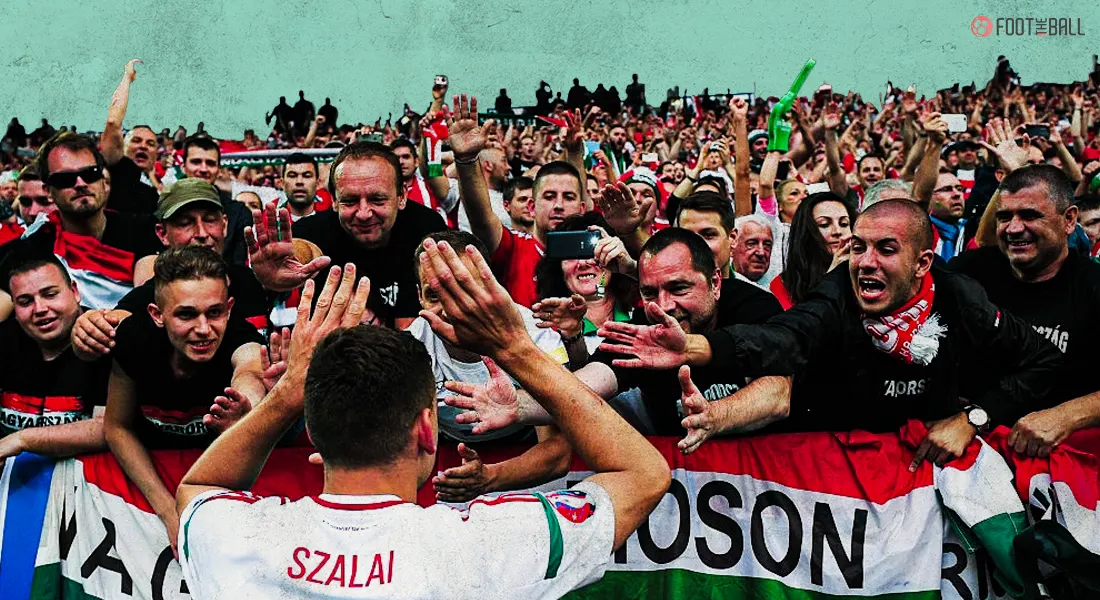Any conversation on the greatest football teams in the world is incomplete without the inclusion of the Hungary national team of the mid-20th Century. Heralded as the Golden Team, the Magical Maygars, Aranycsapat. The feats of this great team were simply extraordinary.
Hungary and Austria had separate football associations since the start of the century although they were under the same constituency. The strong political influence that loomed the country around the world wars also influenced their sporting achievements. The communist regime took interest in the sport and understood its importance.

THE RISE OF THE GOLDEN TEAM
Mid 1949 saw the Hungarian National team fall under the guidance of Sebes, the son of a cobbler, a stalwart trade unionist and a longstanding communist. Sebes had no exemplary qualifications but his connection with János Kádár, a former party leader, was enough to seal the position.
Like most authoritarian states, Hungary also banned its players from going abroad to play in other leagues. The national team benefitted from this as most of the players developed chemistry playing together in the same teams at the club level. Striker Ferenc Puskás and attacking half-back József Bozsik were already part of the state-sponsored club Honved. Many of the other national team players would later join them, furthering the national team familiarity. Sebes learned the importance of picking players from the same team by observing the other successful national sides like Italy.
The new national team started with a loss to Czechoslovakia and realised that their system had to change and change fast. The team understood that the WM formation would no longer hold true and that they would need to think of something inventive. They adapted an almost 4-2-4 formation and thus changed the course of football itself.
THE REVOLUTION
Total Football is surely deemed as one of the most revolutionary tactical brilliance the world of football has ever seen. An incredible concept that took the world by storm. Well, the very concept was laid down by the Hungarian National team albeit not in its finished form. It wouldn’t be far-fetched to say that Hungary laid the foundations for Total Football.
The system laid out by the team included a withdrawn centre-forward (similar to today’s false nine), a sweeper keeper and the interchange in positions of players. The new system was meant to confuse the opposition and it did just that and more.
Under the Capable Ferenc Puskas, the team featured world-class names like Buzánszky, Lóránt and Mihály Lantos, József Zakariás, Bozsik, Hidegkuti, Budai, and Czibor. Puskas lead the team in the forward line and eventually became the most proficient player in Hungarian history. Puskas scored 84 goals in 85 matches and his teammate Sandor Kocsis netted 75 times in 68 matches. A tally that is almost unrivalled by any other national team’s player. FIFA officially acknowledged the top scorer of the 20th Century by naming their latest award, the Puskas Award after the legend.
🧙♂️ Between 1950 and 1954, those fabled Magical Magyars went 1490 days and 31 matches without defeat 🚫
🇭🇺 And that record-breaking run began 70 years ago today 📅#OnThisDay | @MLSZhivatalos | #TBT
ℹ️👉 https://t.co/Gt1Znasv48 pic.twitter.com/0CNIecFqRB
— FIFA World Cup (@FIFAWorldCup) June 4, 2020
Since then, they went on an unbeaten run for 31 games across four years which earned them the title, The Golden Team. Their biggest achievement before the 1950s was the World Cup run in 1938 where they lost out in the final against Italy. Hungarian football was on the rise then and this period helped them achieve a sense of pride.
THE MATCH OF THE CENTURY
In 1952, Hungary beat Yugoslavia in the final of the Olympics by two goals courtesy of Puskas and Czibor which earned them their first-ever Olympic gold. They had a remarkable run in the finals and remained unbeaten as they cruised through to earn the medal. However, their most notable success came not at the World Cup but in the Wembley Stadium a year later.
The founders of the game, England took on the first ranked team in World football in a match that was later dubbed as the ‘Match of the Century.’ The mighty English were torn apart at home soil, in a place they were unbeaten for 90 years. In front of more than a hundred thousand people, Hungary demolished England by a scoreline that read 6-3 in favour of the visitors.
Sir Bobby Robson said of the game: “We saw a style of play, a system of play that we had never seen before. None of these players meant anything to us. We didn’t know about Puskás. All these fantastic players, they were men from Mars as far as we were concerned. They were coming to England, England had never been beaten at Wembley—this would be a 3–0, 4–0 maybe even 5–0 demolition of a small country who were just coming into European football. They called Puskás the ‘Galloping Major’ because he was in the army—how could this guy serving for the Hungarian army come to Wembley and rifle us to defeat? But the way they played, their technical brilliance and expertise—our WM formation was kyboshed in ninety minutes of football. The game had a profound effect, not just on myself but on all of us.”
THE MIRACLE OF BERN
Hungary didn’t stop there either. Every team they took on were heading into the game expecting a beating. The Hungarians were too good, they had incredible players and a unique style of play. Something the world has never seen before. In the 1954 World Cup, Hungary faced South Korea in the first match beating them by nine goals. They beat West Germany next by a score of 8-3. In the quarter-finals, they demolished Brazil by scoring twice as many Brazil did, the scoreline 4-2. The formidable Uruguay was the next victim in the semi-final, wherein they lost by the same margin Brazil did.
The final was all but done and dusted according to the Hungarians as they were seeded against West Germany, a team they rifled past in the Group stages. The Germans looked just about defeated when the match started as Hungary scored early and were two goals up within just eight minutes. However, the unimaginable happened as Germany bounced to score three and steal the title from the Hungarians. Although the Hungarians were unlucky not to win the match, their misfortunate was no excuse. They did not pull through when they most needed it. Having conquered everything before the defeat, they were expected to win this match. The game later became known as the Miracle of Bern.
THE DECLINE
The Hungarians lost their golden generation soon but were still a formidable team. Although they did not impact the World Cups, they were still a threat on the international stage. In 1960, 1964 and 1968 Olympic games, they bagged a bronze and two gold medals in football. In the next Olympics in 1972, they ended up as the runner’s up. The same year they came fourth in the European Championships.
1972 was perhaps the start of the end. They did not qualify for the Olympics or European competitions since. Although they made it to the World Cup’s till 1986, they didn’t manage to get past the group stages of the competition. The 1986 World Cup was the last major international tournament the mighty Hungarians took part in until the 2016 European Championships.
The fall of the Communist Regime and consequent financial loss plummeted the national football team into its darkest era. They fell to their lowest FIFA ranking of 87th in 1996. The loss of funding also affected the domestic leagues. This was the primary reason for the decline of Hungarian football. They could no longer compete with the richer European clubs after the loss of state funding. As a result, many clubs went into bankruptcy and the league’s reputation was tarnished.
Az UEFA döntése értelmében a megszokott 23 fős játékoskeretek helyett 26 főt nevezhetnek a résztvevő válogatottak szövetségi kapitányai a nyári, részben budapesti rendezésű @EURO2020-ra. A mérkőzésekre azonban továbbra is csak 12 cserejátékos nevezhető. #csakegyutt #euro2020 pic.twitter.com/PALEWTZEg5
— MLSZ (@MLSZhivatalos) May 4, 2021
There were many efforts to lift the team back to glory, including appointing Puskas as the head coach in 1993. But none were successful and for years to come, the Hungarian football team remained dormant to the glory of world football. Recent results have sparked interest and their qualification for the Euro 2020 has given them a much-needed facelift. Yet, it is too early to determine how things would pan out for the once most feared team in the world.
THE CARPATHIAN BRIGADE
The War had left Hungary as a divided nation. The politics of the country was in shambles and the right to land in question. Romania was one of the most hated nations post the war and football was a way for the two nations to vent their frustration on each other. The fans of both the countries would often rebel against each other during matches and many fights have broken out between the supporters.
The Carpathian Brigade, the official supporters’ group of Hungary is the voice of the fans and has a far-right political leaning. As seen in many of their fixtures, the fans often engage in violence and take pride in it!
The Austria-Hungary match is the second most played international fixture in the world and is often a levelling field for the once united nations. Both these nations have qualified for the delayed Euro 2020 albeit in different groups.
Will Hungary rise back to glory or is this just a small peak in a long road down?




